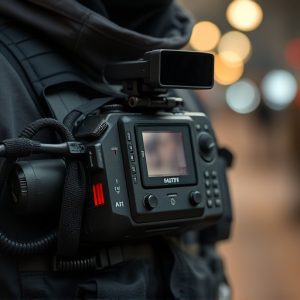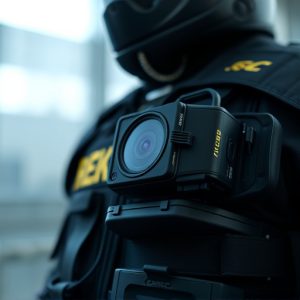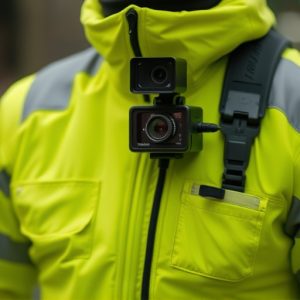Body-Worn Hidden Cameras: Benefits, Ethics, and Future Implications
Body-worn hidden cameras, compact and discreet recording systems attached to clothing or equipment,…….
Body-worn hidden cameras, compact and discreet recording systems attached to clothing or equipment, enhance security and safety across various sectors by providing unique insights and evidence from a first-person perspective. They are widely used by law enforcement, security personnel, and industries for crime prevention, facility monitoring, and worker safety due to their high-quality video and audio capture capabilities, compact size, and quick activation. However, their introduction brings privacy concerns that require thoughtful consideration of regulations, guidelines, and protocols for data storage and access to balance public benefit with civil liberties. Responsible deployment ensures the ethical use of these cameras while fostering trust in technological advancements.
“Unveiling the transformative power of body-worn hidden cameras, this comprehensive guide delves into their evolving role in surveillance. From enhancing public safety to empowering law enforcement, these compact devices offer unprecedented insights. We explore their benefits and diverse applications, from traffic monitoring to crowd control. Yet, we also navigate the ethical landscape, discussing privacy concerns and future implications as technology advances. Discover why body-worn hidden cameras are becoming indispensable tools for modern surveillance.”
Understanding Body-Worn Hidden Cameras: A Comprehensive Overview
Body-worn hidden cameras, also known as wearable surveillance devices, are compact and discreet recording systems that can be attached to an individual’s clothing or equipment. These innovative tools have gained significant attention in recent years due to their potential to enhance security and safety measures across various sectors. By providing a first-person perspective, body-worn hidden cameras offer unique insights and evidence that traditional surveillance methods might miss.
These devices are designed to capture high-quality video and audio, allowing for detailed documentation of events. Whether deployed by law enforcement officers for crime prevention, security personnel for facility monitoring, or even in industrial settings for worker safety, these hidden cameras provide a covert means of observation. Their compact nature ensures easy portability, making them versatile tools that can be quickly activated when needed, offering a new level of discretion and effectiveness in surveillance practices.
Benefits and Applications: Why Choose a Body Worn Camera?
Body-worn cameras, also known as hidden cameras, offer a multitude of benefits for surveillance and security purposes. One of the primary advantages is their discreet nature; unlike traditional fixed cameras, these devices can be worn by individuals, allowing for unobtrusive observation. This feature makes them ideal for situations where privacy and discretion are paramount, such as in law enforcement operations, private security patrols, or even for personal safety.
The applications of body-worn hidden cameras are vast. In law enforcement, they provide an additional layer of accountability, enhancing transparency between officers and the community. They can capture real-time events, offering valuable evidence for investigations and helping to establish precise accounts of incidents. For private security firms, these cameras enable efficient monitoring of high-risk areas, deterring potential criminals and providing crucial footage in case of security breaches or disputes. With their compact size and easy accessibility, body-worn cameras are a game-changer, ensuring better surveillance and peace of mind in various settings.
Ethical Considerations and Future Implications: Navigating the Landscape
The introduction of body-worn hidden cameras marks a significant shift in surveillance practices, raising intricate ethical dilemmas that require careful consideration. As these compact devices become increasingly accessible, their potential for both positive and negative impacts on society is evident. One key concern revolves around privacy invasion; the constant recording capability may erode personal spaces and foster an environment of continuous surveillance, impacting individuals’ freedom and behavior. Additionally, the quality and accessibility of recorded data pose challenges related to consent, data protection, and the responsible use of such evidence in legal proceedings.
Looking ahead, the future implications of body-worn hidden cameras suggest a complex interplay between public safety, privacy rights, and technological advancements. As technology evolves, there’s a growing need for robust regulations and guidelines to ensure their ethical deployment. This includes addressing data storage, encryption, and access protocols to prevent unauthorized use and maintain the integrity of recorded information. Balancing the benefits of enhanced surveillance with the preservation of civil liberties will be crucial in shaping a responsible and transparent future for this technology.


